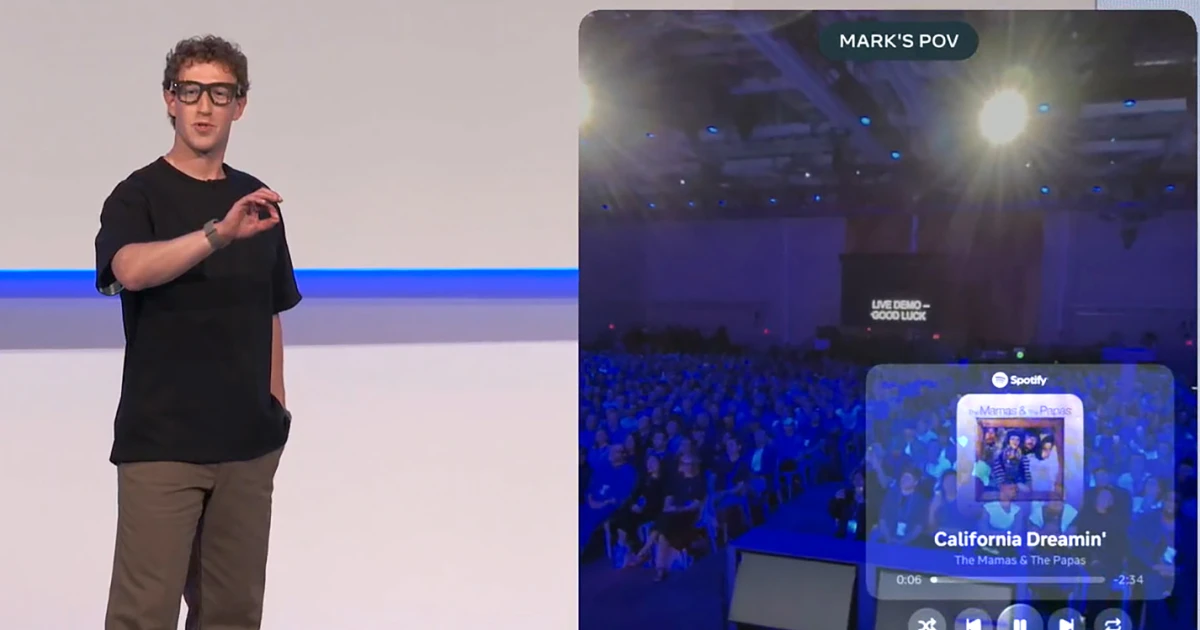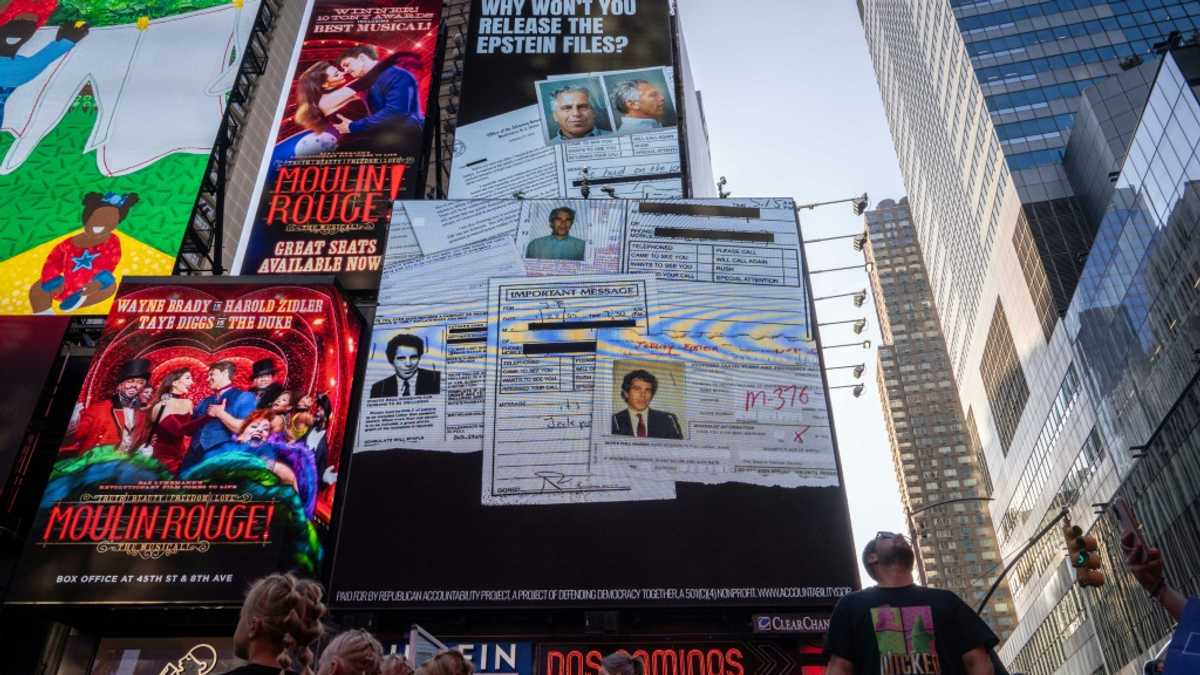
Meta CEO Mark Zuckerberg on Wednesday introduced a new piece of hardware as his company tries to expand beyond social media: a wristband that he said can detect subtle hand gestures and control the features on a pair of smart glasses.
Zuckerberg debuted the wristband at Meta Connect, a company-sponsored tech conference. And while the wristband appeared nondescript, he said on stage that he was using it in combination with a pair of $799 smart glasses to send text messages surreptitiously without touching a smartphone.
“A lot of the time you’re around other people, so it’s good to just be able to type without anyone seeing,” he said, as a screen showed him typing out a text message via his hand movements. The crowd in attendance applauded.
“I’m up to about 30 words a minute on this. You can get pretty fast,” he added.
Zuckerberg also demonstrated using the wristband-and-glasses combo to change the volume of music he was playing and to swipe through photos, which he was looking at through the smart glasses. He tried to accept a phone call via a hand gesture but failed and blamed the conference’s WiFi.
The $799 glasses are an update to a product that Meta first released in 2023 in partnership with EssilorLuxottica, which makes Ray-Ban glasses. The companies had sold 2 million pairs as of February, Luxottica CEO Francesco Milleri said then.
The wristband puts Meta into a crowded field of tech companies that want to put products on people’s wrists, from activity-tracking bracelets to the Apple Watch and other smart watches. But Meta’s product isn’t a watch, and Zuckerberg said the wristband would not be sold on its own. Instead, he said, it would be sold in combination with the smart glasses, starting Sept. 30, as Meta Ray-Ban Display with Meta Neural Band.
Wearable tech has drawn rising interest in the past several years as companies have explored additional body parts that could hold electronic devices, including on fingers and around necks. In July, the Trump administration announced a new data-sharing program that could encourage health-focused wearables.
Meta has been previewing early versions of its wristband for more than four years. Its interest in the subject got a big boost in 2019 when it bought a wristband-related tech startup, called CTRL-labs. And the idea has been around much longer, including in a Microsoft Research prototype in 2012.
Now, Zuckerberg said the idea was finally ready as a consumer product, and he hyped it as a potential breakthrough in how people interact with computers.
“We are replacing the keyboard, mouse, touch, screen, buttons, dials, with the ability to send signals from your brain with little muscle movements that the neural band will pick up, so you can silently control your glasses with barely perceptible movements,” he said.
Meta is best known for its apps such as Instagram, Facebook and WhatsApp, but it has been trying for more than a decade to expand into virtual reality with headsets and augmented-reality eyeglasses.



